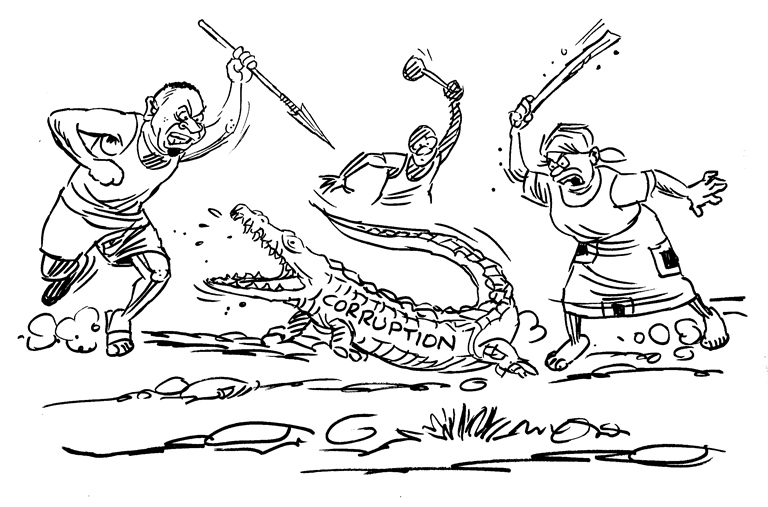Is ‘God-fearing’just a façade?
If you criss-cross communities in the ‘warm heart’ of Africa on Fridays, Saturdays and Sundays you would quickly conclude that we are a religious lot and that our catch-phrase, God-fearing-nation holds true. But such a conclusion may be faulty because you are looking at only one aspect – going to a place of worship. Concluding that we are God-fearing from the numbers you see going to places of worship leaves out a key part of the test: obedience to the teachings of God or living the faith. It is when you ask how many of those you saw piously clutching their hymn books and holy books, and smartly dressed in their religious attire live their faith that you notice we are in deep trouble.
You begin to understand that the history of religion is replete with episodes of corruption of one form or the other. This remains the case even now. Despite religious teachings condemning corruption, leaders and members in religious circles continue to engage and be embroiled in corruption scandals. You will not struggle to produce a long list of individuals with affiliation to a religious entity who also find themselves on a long list of corrupt individuals.
You begin to realise that human beings, as master pieces of the creator who are meant to exist for the purpose of giving God the glory, no longer know why they exist and fall for anything including corruption. I can see you are already enumerating your close associates who are regular goers to places of worship where they generously give offerings, tithes or monthly pledges. Others have even gone on to bequeath assets to their places of worship or the leadership therein.
You will notice that the more the places of worship or the leadership therein benefit from proceeds of corruption, the more they ignore their duty to fight corruption. In that moment the gospel of Matthew in Chapter 5 which describes believers as salt of the earth and light to the world screams at you in anger because the impact that believers ought to have to the world should never wane. In a country where over 75 percent of citizens identify as either Christian or Muslim, moral decadence within Christianity and Islam spells doom to society. A call to religious entities to reclaim their true calling of being salt and light to society should be heed, initially, by way of introspection. Once places of worship deal with elements of corruption in their midst, it would be easier for them to be the guiding light in the fight against corruption. In any case, the majority of us citizens already identify with places of worship.
Ultimately, you come to the realisation and conclusion that ‘God-fearing-nation’ is, at present, just a façade which is masking the rot that lies at the core of our society. The saddening bit is that even men and women of religion are contributing to this rot. It is time that our religious people went beyond attending places of worship and started living the faith. That way, greater transparency and accountability will no longer be stressors to the leadership and members of places of worship. That way, corruption in places of worship will only appear as historical accounts. Corruption, in whatever form, will not be welcome in places of worship.
May religious leaders and members of religions rise and be counted, in real terms, in the fight against corruption. It is possible to signal that corruption is not welcome in our places of worship. This façade is killing us all—slow but certain death. A truly ‘God-fearing-nation’ is needed as a matter of urgency.




